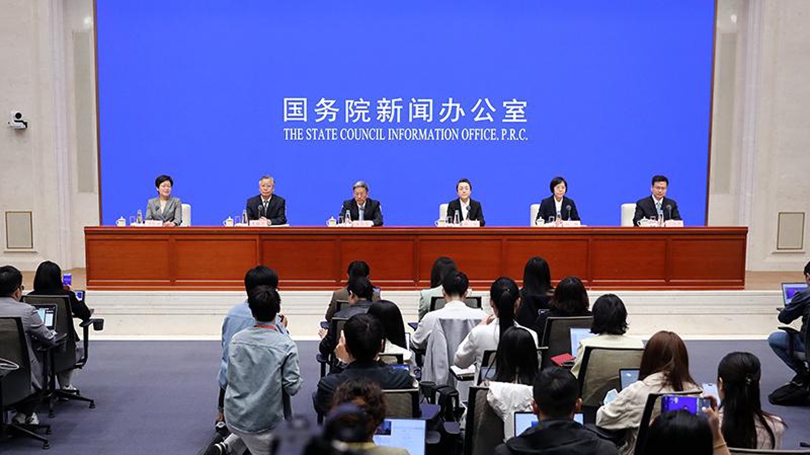Xinhua Finance:
Article 4 of the Private Sector Promotion Law stipulates that the NDRC is responsible for coordinating and overseeing efforts to promote the development of the private economy. I have a question for the NDRC. What steps will be taken next to ensure the effective implementation of the Private Sector Promotion Law? Thank you.
Zheng Bei:
Thank you for your question. The effectiveness of a law depends on its implementation, and private businesses have high hopes for the successful implementation of this law. The NDRC will take an active role in coordinating and planning, working with various departments and local governments to ensure the effective implementation of the law. Efforts will focus on three key areas.
First, we will focus on supporting infrastructure development. During the legislative process, following the guidance of the CPC Central Committee and the State Council, we worked with relevant departments to plan ahead and simultaneously carry out the formulation, revision, repeal and interpretation of related regulations. Several supporting systems and mechanisms have already been introduced, including the market access negative list, regulations to ensure payment for small- and medium-sized enterprises, rules for fair competition review and their implementation measures, guidance on improving the social credit system and a long-term supervision mechanism for enterprise-related fees. Several other measures are being fast-tracked, covering areas such as investment and financing, technological innovation, service support and the protection of rights and interests. At the same time, many local governments, based on their specific circumstances, are actively improving the relevant supporting measures.
Second, we will prioritize effective implementation. We will work closely with relevant departments to fully implement the law and strengthen its binding enforcement. Our efforts will focus on five key areas. First, we will remove obstacles and address issues related to market access and resource acquisition. Second, we will tackle arrears and resolve payment issues for private enterprises. Third, we will provide legal protection for legitimate rights and interests, addressing business development concerns. Fourth, we will implement relief policies to help businesses feel a greater sense of benefit. Finally, we will strengthen communication between the government and enterprises to better respond to reasonable business demands. At the same time, during the law's implementation, we will focus on gathering feedback and suggestions from all parties. We will continuously improve related systems and mechanisms, striving to create a favorable legal environment that supports the healthy development of the private economy.
Third, we will focus on education and public awareness. We will work closely with relevant departments and local governments to thoroughly study the law's contents, gain a deeper understanding of its principles, and apply rule-of-law thinking and methods more consciously to advance the development of the private sector. We will strengthen publicity campaigns for the law to help private enterprises understand and make effective use of it, protect their legitimate rights and interests, and expand their development opportunities. Our goal is to help businesses enhance their core competitiveness and make significant contributions to Chinese modernization. We will promote understanding and compliance with the law across all sectors of society, building consensus and pooling efforts to advance the high-quality development of the private sector.
Turning the law into a powerful driving force for private sector development will require our collective effort and sustained commitment. We hope that all sectors of society will continue to support and pay close attention to the development of the private sector. We welcome any opinions or suggestions regarding the implementation of the law and encourage everyone to share their feedback with us promptly. Thank you.
Xing Huina:
We'll have one last question.


 Share:
Share: 




 京公網(wǎng)安備 11010802027341號
京公網(wǎng)安備 11010802027341號